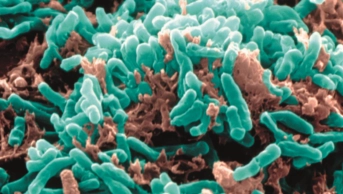
Shutterstock.com
Services for tuberculosis (TB) treatment can be resumed as supply of antimicrobial medicines has “significantly improved”, the Scottish government has announced.
In a medicines supply alert notice, published on 27 October 2025, the Scottish government said that “normal services can now resume” following the resupply — which is UK wide — including latent TB screening and treatment, and the prescribing of rifampicin capsules for non-TB indications in both primary and secondary care.
“Utilisation of available licensed stock and unlicensed imports should be optimised to ensure continuity of patient treatment,” the notice added.
In July 2025, the Department of Health and Social Care (DHSC) announced that shortages of seven formulations of TB medication were expected to last until at least the end of 2025.
The shortages, which include formulations of rifampicin and isoniazid, were attributed to “a combination of factors”, the DHSC said.
In its announcement, the Scottish government said that UK-licensed packs of rifampicin 150mg capsules, rifampicin 600mg IV vials and rifinah 300 (rifampicin 300mg/isoniazid 150mg) tablets remain constrained and will be available intermittently.
In addition, unlicensed imports of rifampicin 150mg capsules, rifampicin 600mg IV vials, and rifinah 300 (rifampicin 300mg/isoniazid 150mg) tablets have been sourced in sufficient quantities to meet the gap in supply of licensed packs, “however, lead times may vary”, it added.
“Licensed stock of other TB treatments is now available. To ensure fair distribution of licensed stock, monthly allocations will be implemented across the UK for specific TB medicines as they become available. Allocation details will be shared directly with health boards via NHS Scotland’s national procurement [service].”
In Scotland, there were 155 TB notifications in the first and second quarters of 2025 — an increase of 13.1% compared with the 137 TB notifications observed in the first two quarters of 2024.
Commenting on the announcement, Laura Wilson, director for Scotland at the Royal Pharmaceutical Society, said: “This news will be reassuring for both patients and healthcare teams. Pharmacists remain vital in supporting patients, ensuring continuity of care and safe use of available stock. This situation highlights the ongoing need to strengthen medicine supply resilience across the system to prevent future disruption and protect access to essential treatments.”
The DHSC has also said that standard TB treatment can resume in England.
In England, TB notifications increased by 3.9% in the first two quarters of 2025 to 2,770 notifications, compared with 2,665 notifications in the first half of 2024.
Nick Hopkinson, medical director at charity Asthma + Lung UK, said: “It’s encouraging to hear the supply of antimicrobial medicines to treat TB has improved. But preventing lung disease is much cheaper than treating it. The government must oversee the effective implementation of a system-wide public health strategy to address the rise in TB rates — and work to ensure people on low incomes are better supported to look after their lung health.”


